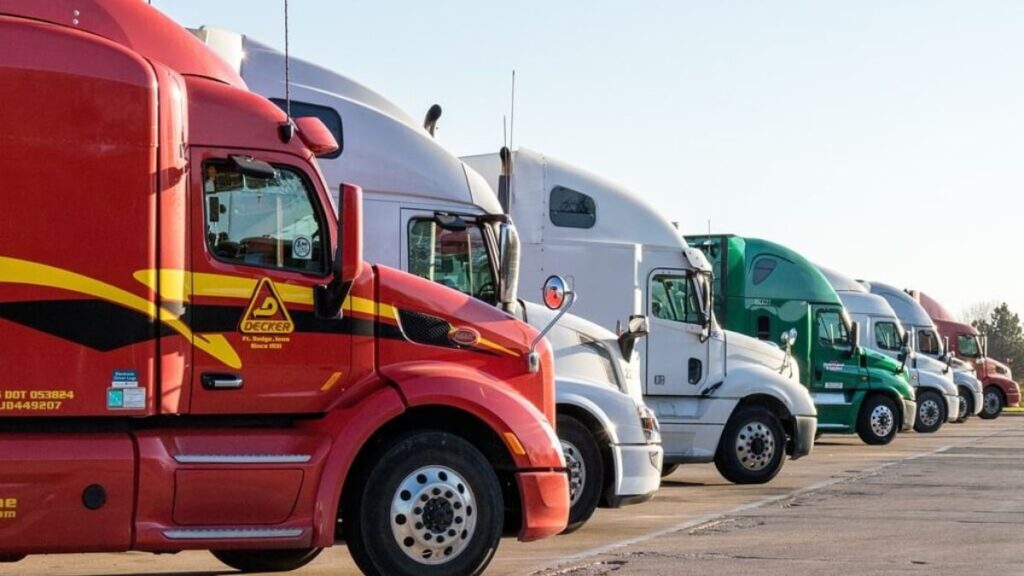In the modern transportation and logistics sector, parking for trucks is far more than a mere operational necessity. It has evolved into a critical element of safety, efficiency, and supply chain optimization. Truck drivers, fleet operators, and infrastructure planners recognize that adequate and well-designed parking facilities are essential to maintaining a smooth freight ecosystem. This article explores the importance of truck parking, the challenges faced by the industry, current best practices, and the innovations shaping its future.
The Importance of Parking for Trucks
Truck parking is vital for multiple reasons: driver safety, regulatory compliance, and operational efficiency. When drivers cannot find proper parking for trucks, they may be forced to stop in unsafe or unauthorized locations, such as highway shoulders or exit ramps. Fatigue-related accidents increase when drivers are unable to rest at designated parking areas, making safety a top priority.
Regulatory compliance is another major factor. Most countries enforce maximum driving hours to prevent driver fatigue. Without available and properly located parking for trucks, drivers may inadvertently violate these rules, risking fines, penalties, and jeopardizing road safety.
Operational efficiency is also influenced by parking availability. Drivers spend significant time searching for parking, which translates to lost hours, fuel, and productivity. A shortage of reliable parking for trucks directly impacts delivery schedules, fleet management, and overall logistics costs. Recognizing parking as a strategic asset rather than a minor necessity is crucial for modern fleet operations.
Challenges Facing Truck Parking
Despite its importance, truck parking remains a persistent challenge globally. A few key issues include:
Shortage of Spaces: The demand for truck parking continues to outpace supply, particularly near major freight corridors. Many drivers report difficulty finding available parking at peak times, leading to congestion and unsafe stopping behavior.
Uneven Availability: Even when parking exists, it is not evenly distributed or consistently available. Drivers may find spaces near popular routes full during evening hours, forcing them to divert or park in unsafe areas.
Operational Inefficiencies: Searching for parking consumes time, fuel, and resources. On average, drivers can spend almost an hour daily just locating a parking spot, which affects delivery times and increases operating costs.
Infrastructure Limitations: Many parking facilities were designed for older fleets, with inadequate space for modern truck sizes, limited technology for occupancy tracking, and minimal driver amenities.
Emerging Operational Needs: The rise of electric and autonomous trucks is creating new requirements for parking facilities, including charging stations, automated bays, and digital monitoring systems.
Features of Effective Truck Parking
High-quality parking for trucks is defined by several key characteristics:
- Safety and Security: Proper lighting, surveillance, fencing, and well-marked entrances and exits enhance driver safety.
- Adequate Size and Accessibility: Parking bays must accommodate large trucks and trailers, allowing for safe maneuvering and clearance.
- Driver Amenities: Facilities offering restrooms, showers, lounge areas, and food services improve driver satisfaction and compliance.
- Real-Time Information: Digital tools providing live updates on availability allow drivers to plan their stops efficiently.
- Integration with Logistics: Parking locations near highways, distribution centers, and freight hubs reduce deadhead miles and optimize fleet operations.
- Flexibility for Future Needs: Infrastructure should be designed for autonomous vehicles, EV charging, and technological upgrades.
- Sustainability: Energy-efficient lighting, stormwater management, solar panels, and green landscaping reduce environmental impact.
By focusing on these features, operators can enhance both driver experience and operational efficiency while preparing for future logistics trends.
Innovations and Future Trends
The truck parking industry is undergoing significant transformations driven by technology, sustainability, and evolving freight patterns.
Smart and Connected Parking: Sensor networks and IoT-enabled systems are revolutionizing truck parking. Real-time occupancy monitoring, digital reservation systems, and predictive analytics allow drivers to find and reserve spaces efficiently. These systems reduce congestion, improve safety, and enhance fleet planning.
Predictive Analytics: Using GPS, telematics, and historical data, parking operators can forecast demand for parking for trucks. This information allows for better resource allocation, reduces idle time, and enhances overall supply chain efficiency.
Autonomous and Electric Trucks: As autonomous and electric trucks become more common, parking infrastructure must adapt. Dedicated charging stations, automated parking bays, and maintenance zones will become standard features in future facilities.
Urban Multi-Level and Shared Parking: In areas with limited space, multi-level parking structures and shared-use models are emerging. These solutions maximize available land while accommodating modern truck dimensions and operational requirements.
Sustainable Design: Green parking facilities featuring solar canopies, LED lighting, efficient water management, and eco-friendly landscaping reduce environmental impact and operational costs while supporting sustainability initiatives.
Reservation and Fee Models: The introduction of pre-booking systems and dynamic pricing enables better utilization of parking for trucks. Premium amenities, subscription models, and loyalty programs are becoming part of the business model.
Location Intelligence: Strategic placement of truck parking near freight corridors, ports, and distribution centers reduces operational inefficiencies, ensuring smoother logistics and improved driver satisfaction.
Strategic Considerations for Stakeholders
To optimize parking for trucks, stakeholders should consider the following:
- Invest in Technology: Smart infrastructure and analytics tools improve utilization and driver experience.
- Plan for Future Vehicles: Electric and autonomous trucks require adaptable infrastructure to support charging and automated operations.
- Integrate with Supply Chains: Parking should be strategically located near freight routes to reduce deadhead miles and maximize efficiency.
- Enhance Driver Experience: Amenities, safety measures, and convenience improve compliance and satisfaction.
- Prioritize Safety and Compliance: Proper lighting, surveillance, and adherence to regulations protect both drivers and operators.
- Focus on Sustainability: Eco-friendly designs reduce costs, minimize environmental impact, and meet corporate and regulatory expectations.
- Develop Innovative Revenue Models: Reservation fees, premium services, and dynamic pricing can enhance profitability.
Real-World Impact
Properly planned and executed parking for trucks has a tangible effect on the logistics industry:
- Reduced driver fatigue and accidents
- Improved fleet efficiency and productivity
- Lower operational costs from reduced idle time and fuel consumption
- Enhanced regulatory compliance and reduced liability
- Better driver satisfaction and retention
Organizations that recognize the importance of parking for trucks and invest in modern, safe, and sustainable facilities are better positioned for the future of freight logistics.
Conclusion
The evolution of parking for trucks highlights its critical role in modern transportation. As fleets grow, vehicle technology advances, and logistics networks expand, parking is no longer just a stop, it is a strategic asset. Investing in safe, efficient, connected, and sustainable parking facilities will ensure smoother operations, safer roads, and higher satisfaction for drivers and fleet operators alike. The future of truck parking is smart, flexible, and forward-thinking, positioning the industry for long-term growth and operational excellence.







